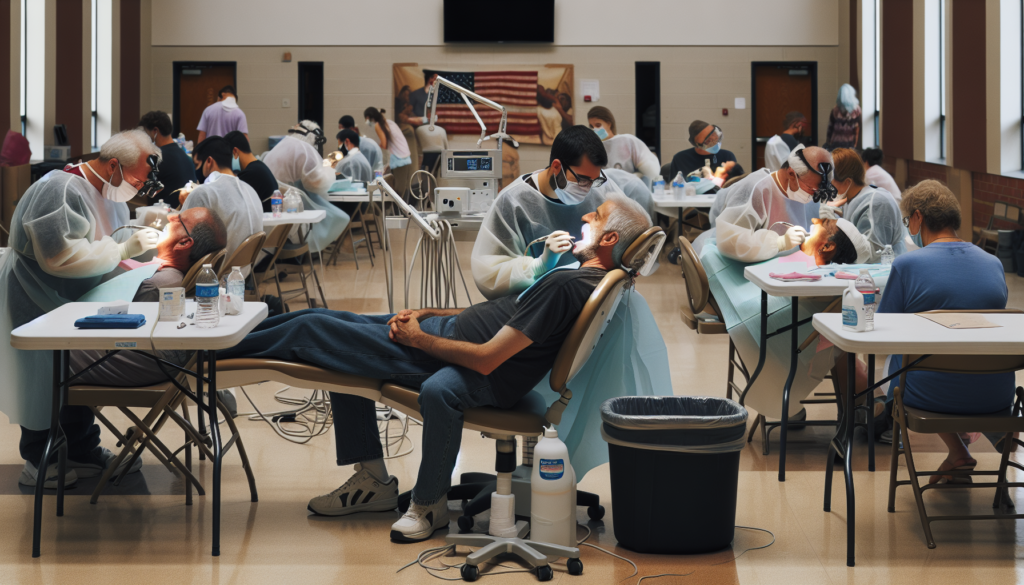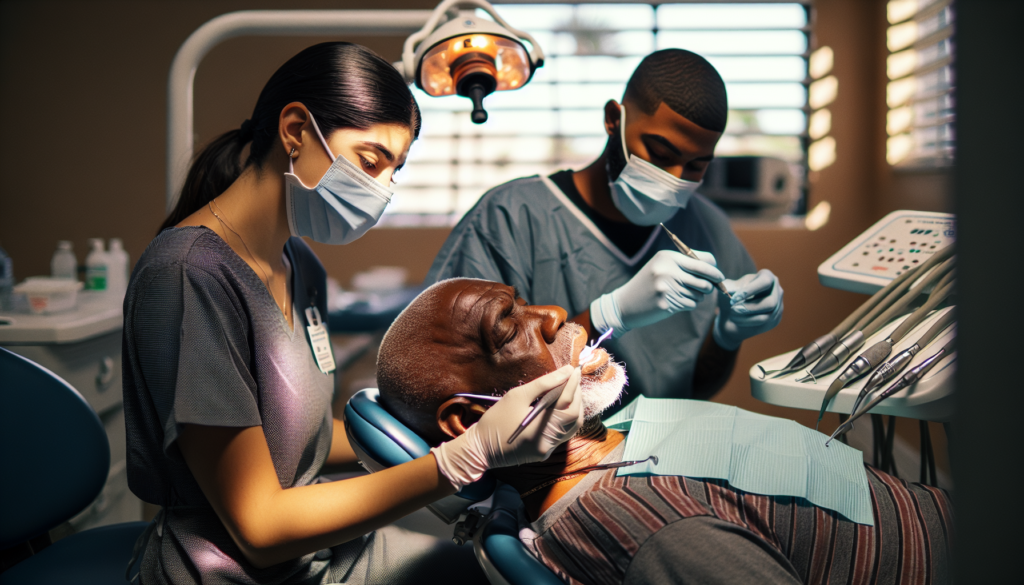Expanding Dental Care Access Through the Sonríe Clinic Initiative
Healthy smiles begin with equal opportunity. Learn how small, consistent habits—like daily dental care and giving back—can create lasting impact. Discover more about building better habits and stronger communities with The Habit Method.
Bridging the Gap in Dental Care for Underserved Communities
Access to dental care remains one of the most overlooked aspects of public health in many parts of the United States. In North Carolina, numerous families struggle to find affordable and culturally competent oral health services. This gap often leaves communities vulnerable to preventable oral diseases that can affect overall well-being. Recognizing these disparities, East Carolina University (ECU) launched the Sonríe Clinic Initiative—a program designed to provide inclusive dental care to those who need it most.
Through this initiative, ECU’s School of Dental Medicine continues its mission of transforming oral health access across the region. By combining education, service, and innovation, the Sonríe Clinic is bridging cultural and economic barriers to promote better health for all.
The Sonríe Clinic Initiative: A Lifeline for Hispanic and Latino Families
The Sonríe Clinic—named after the Spanish word for “smile”—was founded with a deep commitment to serving Hispanic and Latino populations. For many families in Eastern North Carolina, language and cost have historically limited access to quality care. The clinic works to eliminate these challenges by offering bilingual dental professionals and providing affordable dental services tailored to community needs.
What makes this initiative special is its comprehensive approach. It doesn’t only treat patients; it builds trust and long-term relationships. The Sonríe Clinic’s mission echoes ECU’s broader goal of creating a healthcare system where everyone has an equal chance to achieve optimal oral health.
Culturally Competent and Bilingual Dental Care Services
Effective communication lies at the heart of quality healthcare. Without understanding cultural backgrounds and language nuances, critical information can be lost between provider and patient. The Sonríe Clinic sets a new standard by ensuring that every interaction respects cultural identity while improving the patient’s overall comfort and understanding.
By employing bilingual dentists, dental hygienists, and support staff, the clinic reduces fear and confusion often associated with dental visits. Patients can ask questions in their preferred language and receive explanations they fully understand. This inclusive approach not only enhances treatment outcomes but also encourages consistent preventive care—an essential component of long-term oral health.
Why Cultural Competence Matters
- Improved patient trust: When patients feel understood, they’re more likely to return for regular visits and follow professional advice.
- More accurate diagnoses: Communication barriers are minimized, allowing for better assessments and tailored treatment plans.
- Better health outcomes: Studies show that culturally competent healthcare leads to higher satisfaction and improved community health metrics.
Training the Next Generation: Dental Students at the Heart of the Initiative
Beyond providing care, the Sonríe Clinic acts as a hands-on learning environment for ECU dental students. These future professionals gain practical experience in a real clinical setting while serving diverse communities—a dual benefit that enhances both education and empathy. Students learn the importance of understanding different backgrounds and applying patient-centered care in every appointment.
This experiential model fosters compassion, cultural awareness, and technical excellence. It also ensures that the next generation of dentists enters the field prepared to meet the needs of a broad and diverse patient population. By practicing what they learn in real-world community settings, students help advance the mission of oral health equity in North Carolina.
Expanding Access Through Partnerships and Community Outreach
The power of collaboration drives the Sonríe Clinic’s ongoing success. ECU has partnered with local health organizations, schools, and community leaders to reach more people in need. Through mobile dental units, outreach events, and preventive education programs, the Sonríe Clinic extends dental care far beyond its physical walls.
These outreach efforts provide essential services—ranging from free screenings to oral hygiene education—making it easier for residents to access preventive and affordable dental care close to home. The clinic also shares educational materials to promote routine check-ups and prevention strategies that help maintain oral health at every stage of life.
- Community dental outreach: Delivering on-site services at schools and local events.
- Preventive oral health programs: Teaching families how to maintain healthy routines.
- Partnerships with public health networks: Coordinating care across multiple organizations.
Healthier Smiles, Stronger Communities: The Measurable Impact of Sonríe
The results of the Sonríe Clinic’s efforts are both measurable and meaningful. Each year, hundreds of patients receive essential care that would otherwise be out of reach. Beyond numbers, the most compelling evidence lies in the renewed confidence of patients who can now smile without hesitation.
As families receive long-term care, communities experience a ripple effect: higher employment readiness, improved self-esteem, and better overall health. Studies continue to show that oral health plays a critical role in general well-being—linking healthy smiles to heart health, nutrition, and even mental wellness.
Through the combined effort of dental students, faculty, and community partners, the Sonríe Clinic has become a model for how accessible dental services can strengthen economic and social foundations statewide.
The Future of Equitable Dental Care at East Carolina University
Looking ahead, ECU plans to expand the reach of the Sonríe Clinic Initiative by replicating its model across additional underserved regions. Through innovation and collaboration, the university aims to offer equitable dental care that every North Carolinian can access, regardless of income or language background.
Community involvement remains a core component of this mission. Individuals and organizations are invited to get involved with the Sonríe Clinic Initiative through volunteering, donations, or advocacy. Together, these partnerships can ensure that oral health equity continues to grow—one smile at a time.
Conclusion: A Model for Inclusive and Accessible Oral Health in North Carolina
The Sonríe Clinic Initiative represents more than a healthcare program—it’s a movement toward inclusion, compassion, and sustainable change. By addressing the cultural, economic, and educational barriers to care, ECU is inspiring a healthier future while empowering students and professionals to make a lasting difference in their communities.
Ready to transform your habits and help create healthier neighborhoods? Explore how consistent actions can lead to extraordinary results with The Habit Method.
Frequently Asked Questions
1. What is the main purpose of the Sonríe Clinic Initiative?
The initiative aims to expand access to affordable, high-quality dental care for underserved populations in North Carolina, focusing especially on Hispanic and Latino communities.
2. Who operates the Sonríe Clinic?
The clinic is managed by East Carolina University’s School of Dental Medicine, supported by dental students, faculty, and community health partners.
3. How does the clinic improve oral health equity?
It offers bilingual and culturally competent care that removes communication barriers and ensures that every patient receives respectful, personalized treatment.
4. Can community members volunteer with the Sonríe Clinic?
Yes. Local residents, dental professionals, and students can participate through outreach events, educational efforts, and other volunteer opportunities that help expand care access.
5. How does ECU measure the impact of the Sonríe Clinic?
The university tracks metrics such as patient numbers, outreach reach, and improvements in oral health outcomes to evaluate the success and growth of the program.
Post Disclaimer
DentalUp is for educational purposes only and cannot accept personal dental information such as x-rays, photos, or treatment details. See full disclaimer here.





